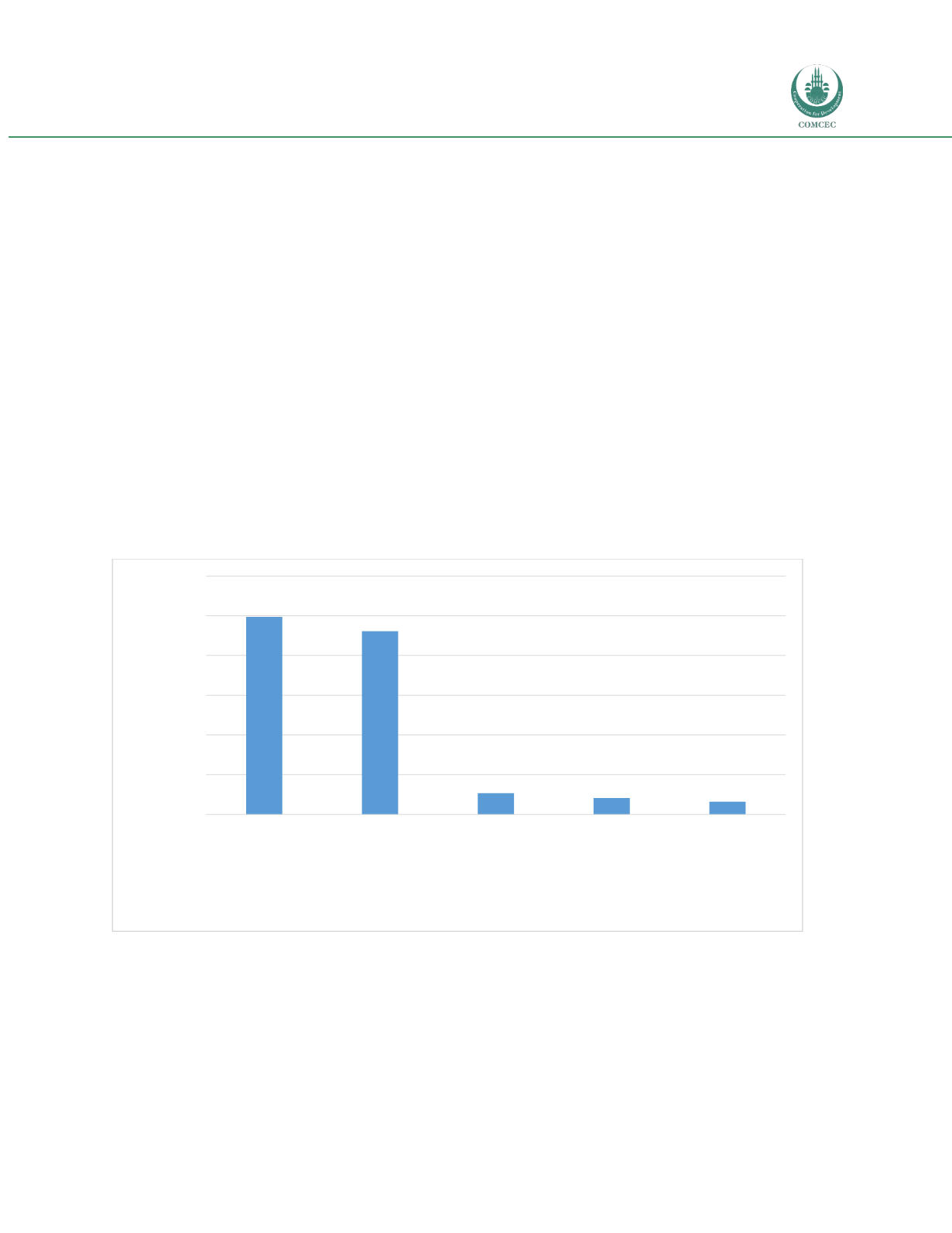

Strengthening the Compliance of the OIC Member States
to International Standards
73
6.2
OIC Member State Case Studies
6.2.1
Bangladesh
Bangladesh is an LDC with a per-capita income of USD$1,314 in 2014 (measured at purchasing power
parity rates). Classified as a Next Eleven emerging market and one of the Frontier Five, the country has
exhibited average GDP growth of 6% per annum over the last decade. The economy is increasingly led
by export-oriented industrialization. The Bangladesh textile industry is the second largest in the world.
Other key sectors include pharmaceuticals, shipbuilding, ceramics, leather goods, and electronics.
Agriculture also plays a crucial role in the economy, with the principal cash crops
being rice, jute, tea, wheat, cotton, and sugar cane. Bangladesh also ranks fifth in the global production
of fish and seafood. Figure 35 shows the top five export sectors for Bangladesh—the dominant role of
textiles is clear. The following figure highlights the five most important export markets, and it is clear
that extra-regional trade with developed markets is of particular importance to the country.
Figure 35: Top five export sectors for Bangladesh, 2011
Source: WITS-Comtrade.
0
2000
4000
6000
8000
10000
12000
Art of apparel &
clothing access,
knitted or croc
Art of apparel &
clothing access, not
knitted/cro
Other made up
textile articles;
sets; worn clothi
Other vegetable
textile fibres;
paper yarn &
wove
Fish & crustacean,
mollusc & other
aquatic invert
Million USD
Product
















